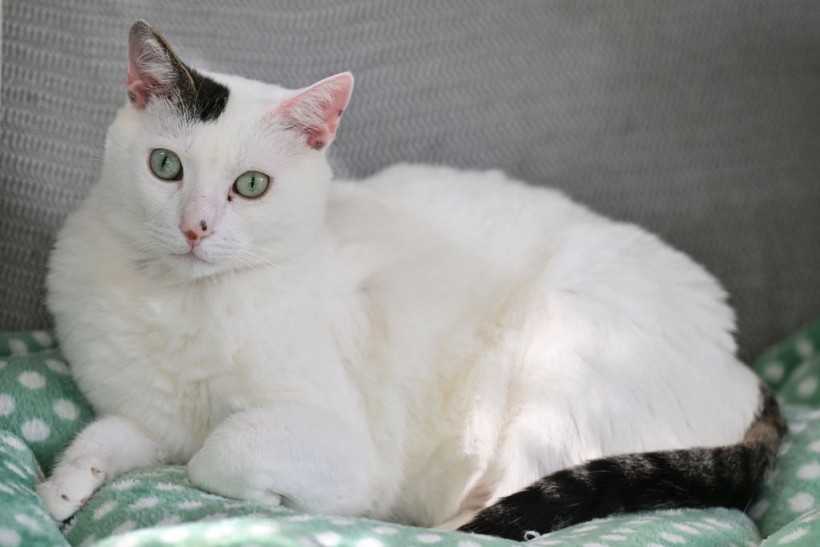Cats are among the most popular and beloved animals in the world, but they are also the source of many conflicts and controversies.
A new study by researchers from the University of Exeter and the University of Auckland has examined the challenges and dilemmas of managing domestic and wild cats in Britain and New Zealand, two countries that have different approaches and attitudes towards these animals.
The difference between Britain and New Zealand
 (Photo : MIGUEL MEDINA/AFP via Getty Images)
(Photo : MIGUEL MEDINA/AFP via Getty Images)

The study, which was published in the journal Communications Biology on August 7, compared how people in Britain and New Zealand deal with domestic and wild cats, especially in relation to their impacts on native biodiversity, as per Phys.org.
The researchers interviewed various stakeholders, such as conservationists, farmers, researchers, policymakers, and cat owners, to understand their perspectives and experiences.
The study found that Britain and New Zealand have very different views and values regarding cats.
In Britain, cats are generally seen as pets or companions, and people are reluctant to harm or kill them, even if they pose a threat to other species.
Meany, in New Zealand, cats are often seen as pests or predators, and people are more willing to control or cull them, especially if they endanger native species.
The study also found that Britain and New Zealand have different legal and practical challenges in managing cats.
In the former, the main problem is distinguishing between domestic cats, feral cats, and wildcats, which are all protected by law but have different levels of threat to native wildlife.
Meanwhile in the latter, the main problem is enforcing the regulations and responsibilities of cat ownership, such as microchipping, neutering, and confining.
Also Read: German Town Bans Cats From Going Outdoors to Save Endangered Crested Lark
The implications and recommendations of the study
The study suggested that managing domestic and wild cats is likely to remain fraught for the foreseeable future, as there is no easy or universal solution that can satisfy everyone, as per Eurekalert.
It also said that managing cats requires more than technical or scientific interventions; it also requires social and cultural considerations, such as public awareness, education, participation, and dialogue.
The researchers recommended that more research and monitoring should be done to understand the ecology and behavior of cats, as well as their impacts on other species.
More regulation and enforcement should also be implemented to ensure that cat owners follow the best practices for their pets' welfare and environmental impact.
The study also suggested that more alternatives and innovations should be developed to reduce the reliance on lethal methods for controlling feral or invasive cats.
The researchers hoped that their study will contribute to a more informed and constructive debate on how to manage domestic and wild cats in a way that respects both human and animal interests.
They also hoped that their study will inspire more collaboration and cooperation among different stakeholders, such as conservationists, farmers, cat owners, veterinarians, animal welfare groups, and policymakers.
Human-cat conflict resolution is the process of finding ways to reduce or prevent the negative impacts of human-cat interactions, such as predation, disease transmission, or persecution. It can involve various strategies, such as education, compensation, coexistence, or conservation.
Education is a strategy that aims to increase the awareness and understanding of the causes and consequences of human-cat conflict, as well as the benefits and challenges of living with cats.
It can target different audiences, such as farmers, hunters, tourists, students, or policymakers. Education can also use different methods, such as workshops, campaigns, media, or art.
Another strategy proposed is compensation, which aims to reimburse the losses or damages caused by cats to humans, such as livestock depredation or crop raiding.
Compensation can take different forms, such as cash payments, insurance schemes, or in-kind support, and it can also have different criteria, such as verification, eligibility, or timeliness.
Related article: Humans Can Communicate with Cats by Blinking the Eyes Slowly and Using Other Facial Gestures
© 2024 NatureWorldNews.com All rights reserved. Do not reproduce without permission.




![Roundworms with Short Memories 'Stop Forgetting' When Frozen or Given Lithium [Study]](https://1471793142.rsc.cdn77.org/data/thumbs/full/70295/280/157/50/40/roundworms-with-short-memories-stop-forgetting-when-frozen-or-given-lithium-study.jpg)
